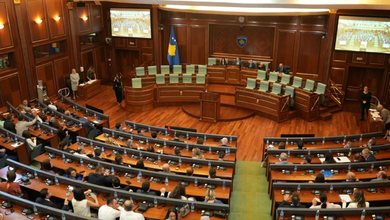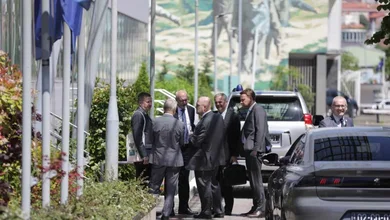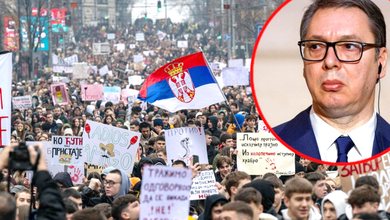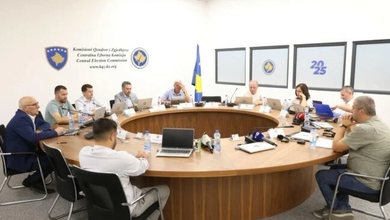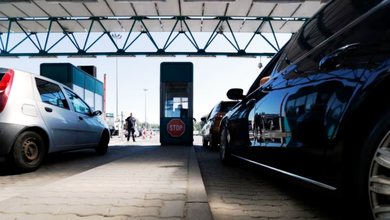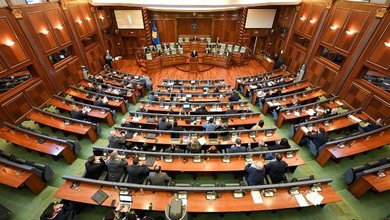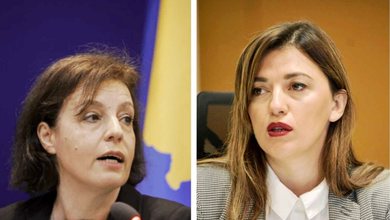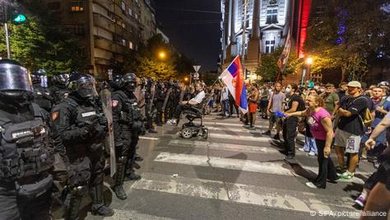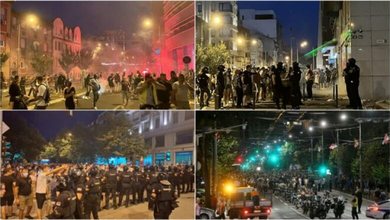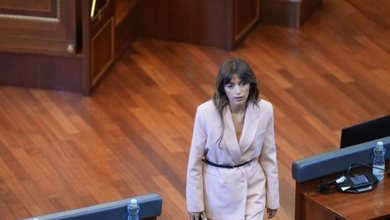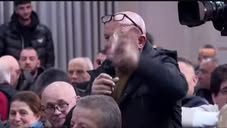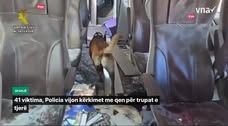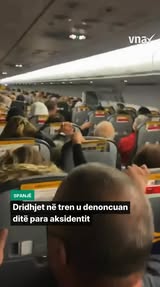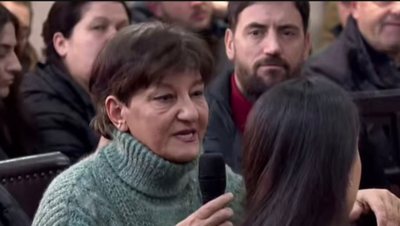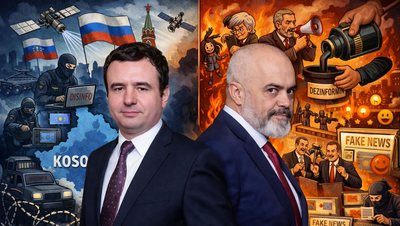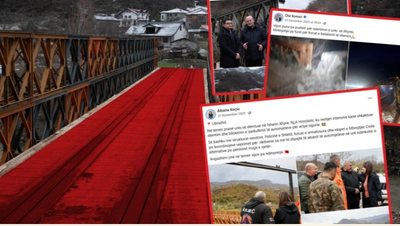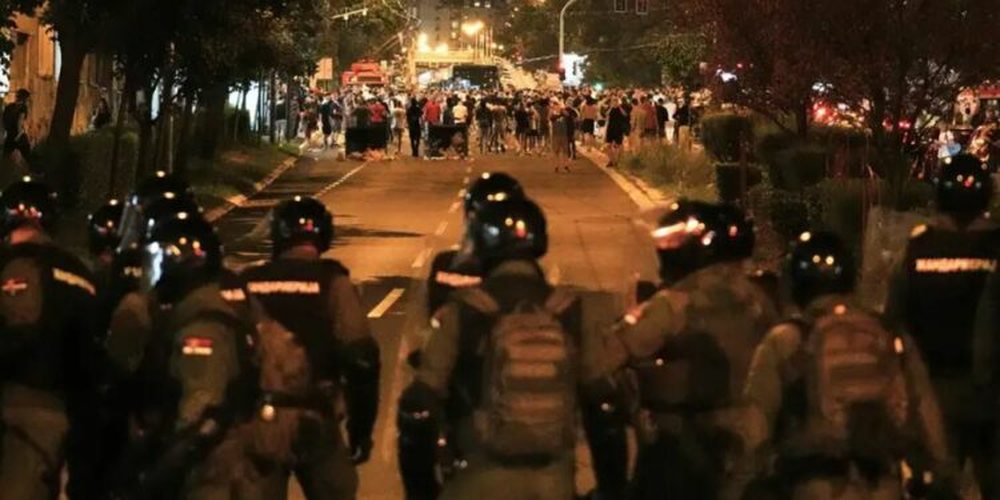
In Serbia, security forces are brutally suppressing demonstrators. Criminal gangs are also reportedly being used. Is this straining Serbia's relations with the European Union?
The situation in Serbia is tense: Every day there are new reports of police violence against demonstrators, arrests, and accusations that the Western Balkan country's government is employing criminal gangs against its own civilian population.
Since a train station canopy collapsed in the northern Serbian city of Novi Sad in November 2024, killing 16 people, protests against the Serbian government have continued unabated. The demonstrations were peaceful for a long time – but in recent days, violence has escalated on the streets of the capital, Belgrade, and other cities. The country’s right-wing populist President, Aleksandar Vučić, now wants to crack down even harder on the protesters.
How is Brussels reacting to the recent escalations in the EU candidate country?
The European Union Ambassador to Serbia, Andreas von Beckerath, called in a statement “on all parties to de-escalate tensions.” Any suspicion of excessive use of force by the police should be properly investigated.
When asked by DW, the European Commission said it was closely monitoring the situation in Serbia. The EC's position is clear: "The right to peaceful demonstration and freedom of assembly must be respected and the authorities must protect participants in rallies from harm or violence," said Guillaume Mercier, a spokesman for the Commission. However, these statements are not enough for many politicians and observers. For months, they have been calling for a tougher stance against the Serbian government and President Vučić.
Criticism from the European Parliament
One of the critics is MEP Tonino Picula. As rapporteur for Serbia in the European Parliament, he devotes a lot of time to the country. The Croatian social democrat criticized Brussels on Wednesday, speaking to the N1 television station, which covers the entire Western Balkans, for not adopting a more unified and critical stance towards Serbia. “The EU currently has neither the motivation nor the capacity to act differently towards the Aleksandar Vučić regime. Unlike in Ukraine, the unity needed to exert pressure is missing here,” Picula said.
Strategic interests of both Brussels and Belgrade may also play a role here: In 2024, the EU signed an agreement with Serbia, securing access to Serbian lithium. Moreover, Serbia has skillfully exploited its friendly relations with Russia, says Antigona Imeri of the Center for European Policy Studies, a Brussels-based think tank. Fearing a rapprochement with the regime of former Russian President Vladimir Putin, Europe has been too soft: “This appeasement strategy of the EU has failed, it now urgently needs to adopt a different tone.”
Only 40% for the EU
But even after the latest escalation of violence, the EU continues to operate in a “business as usual” manner with Serbia and has failed to clearly hold the government accountable. “This is understandable from a geopolitical perspective, but it becomes problematic if it creates the impression that it comes at the expense of the Union’s fundamental values,” Imeri said.
The impression it creates undermines many people’s trust in the EU – and trust in Serbia is already relatively weak: In a spring 2025 poll conducted by the International Republican Institute, only 40 percent of respondents said they would vote for their country to join the EU. Meanwhile, more than half say they no longer believe the EU is seriously interested in the Western Balkan states joining.
EU is Serbia's most important economic partner
Not all experts see Brussels' strategy towards Belgrade as problematic: "I think it's too early to assess the EU's position on this issue," says Nina Vujanovic of the Brussels-based think tank Bruegel. The EU has signaled that it is monitoring the situation and should continue to do so.
Instead of exerting pressure, Brussels should focus on economic incentives – then the risk of Serbia drifting towards Russia would be low: “Serbia has a much greater economic interest in implementing EU reforms than in rapprochement with Russia,” according to Vujanovic. The country has long been closely tied economically to the EU: Over 60 percent of Serbian exports go to the EU and over 60 percent of foreign direct investment in Serbia comes from there.
Economic means can certainly be used to pressure Vučić and his regime: the EU has promised Serbia a staggering €1.6 billion by 2027 – but these funds are tied to the implementation of reforms. “The EU can cut these funds or delay their disbursement if it determines that a country is not fulfilling its obligations,” explains Vujanović.
So far, Serbia, which has been a candidate for EU membership since 2012, appears to be far from implementing the reforms necessary for EU membership. An EU report on the rule of law in Serbia, published in July, found, among other things, that strong political pressure continues to be exerted on the judiciary and civil society associations. There are growing concerns about the safety of journalists in Serbia.
It is precisely against this situation that students and many other citizens of the country have been taking to the streets for months – despite the risk of arrest or injury by the police. If the violence during the protests continues, the EU could come under increasing pressure to take a clearer stance towards Belgrade./DW


